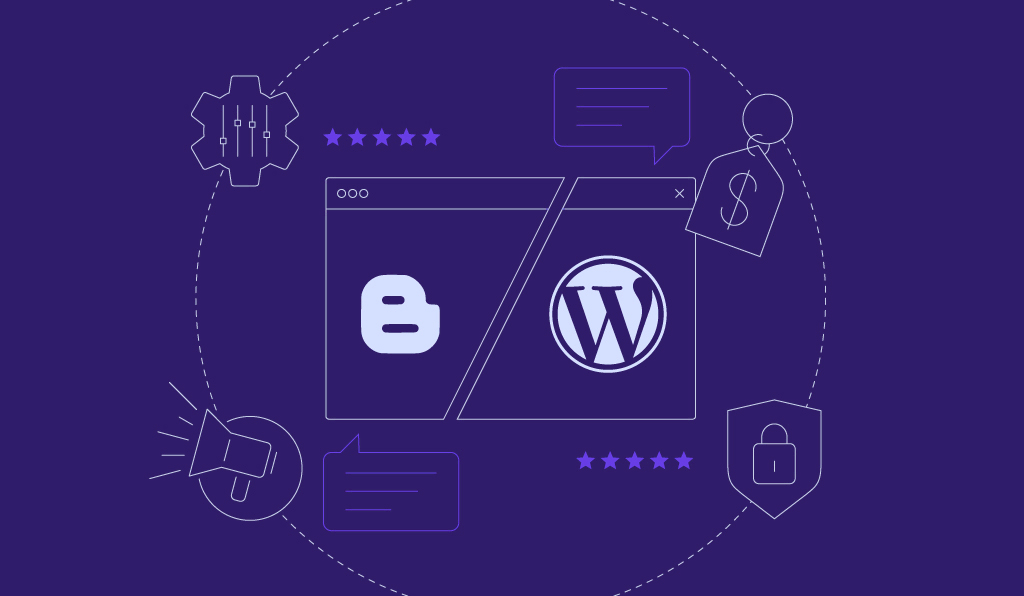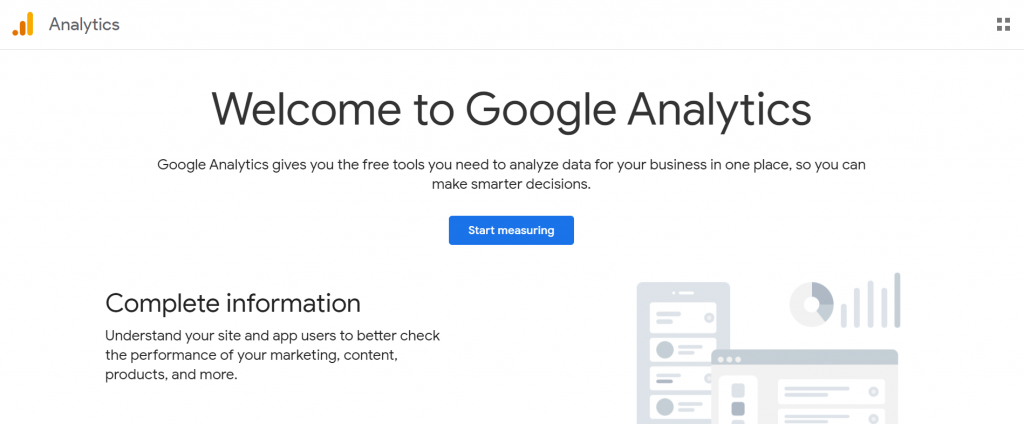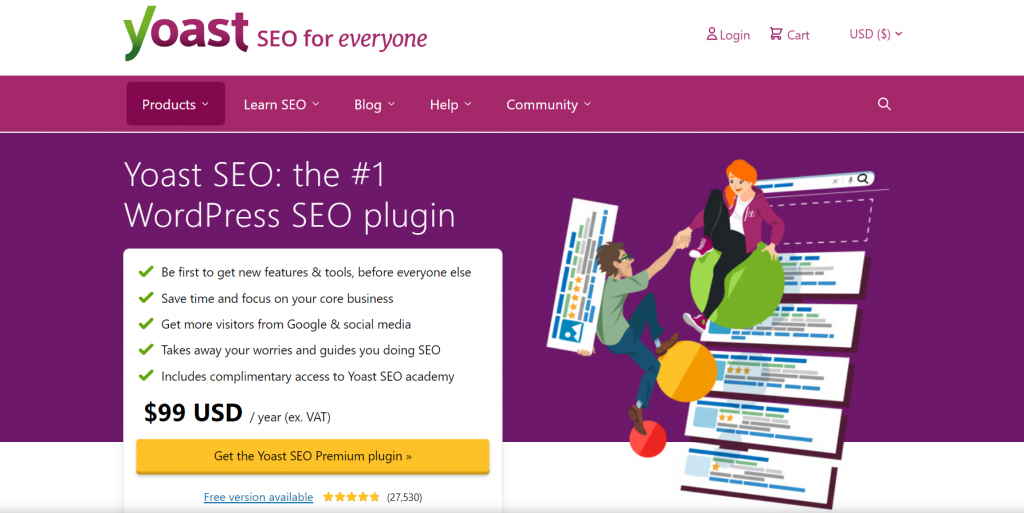Blogger vs WordPress Comparison: Customization, Marketing, Pricing, Security, and More

If you want to start a blog, choosing the best platform is important since it will affect how your blog performs and scales. Among the available options, Blogger and WordPress are the two of the most popular blogging platforms.
Blogger and WordPress allow users to create a blog using various customization options. However, each platform has its pros and cons.
This article will look at WordPress vs Blogger and evaluate their features and differences in various categories, from user-friendliness and customizability to security. Plus, we’ll include a comparison table to help you determine the best blogging platform among the two.
Download all in one WordPress cheat sheet
What’s the Difference Between Blogger and WordPress?
The main difference is that Blogger is a free, user-friendly blogging platform owned by Google with limited customization options, while WordPress is a more powerful and versatile platform with greater flexibility and control. WordPress offers a range of customization options and has a huge library of plugins and themes to choose from. However, it requires more technical knowledge to set up and maintain. Ultimately, the choice comes down to the user’s specific needs and preferences.
What Is Blogger?
Blogger is a free blog hosting service. It’s known for its simplicity and user-friendliness, making it popular among beginners.
Since Google owns Blogger, you only need a Google account to log in to your blog. It already includes a free Blogspot subdomain, so your blog address will be www.yourname.blogspot.com.
One account can create up to 100 blogs and store thousands of photos and videos. There are no limitations on how many blog posts a user can create. However, the number of static pages created can’t exceed 20.
Other notable features of the Blogger platform include:
- Seamless integrations with Google services like Google Domains, Google Photos, Google Affiliate Network, and Google Adwords.
- Security, reliability, and constant updates by Google.
- Free SSL certificate.
- Simple and intuitive content management system (CMS).
- A wide range of starter template options.
What Is WordPress?
WordPress is one of the best open-source blogging platforms used by 43% of websites.
Users can create any website with WordPress, including a blog, online store, personal website, and portfolio. Many big companies, such as BBC America and Microsoft, use WordPress websites for their businesses.
Before installing WordPress, users should buy hosting and a domain name. Many hosting companies, including Hostinger, also offer domain registrations to speed up website building.
Here are other notable features of WordPress:
- Various publishing tools, from media management to scheduled posts.
- Extensive plugins.
- Tons of free and premium themes.
- The platform supports up to 70 languages.
- A well-established community.
Note that this article will compare Blogger with WordPress.org, not WordPress.com.
The former is the open-source content management system, while the latter is the freemium, simplified version of the software. As such, WordPress.com lacks some of WordPress.org’s features, including unlimited access to plugins and themes.
Blogger vs WordPress: Comparison Table
To help decide which is the most suitable platform for your blog, we’ve created a comparison table for WordPress vs Blogger.
| Platform | Pros | Cons |
| Blogger | Launch a blog easily and quickly using only a Google account Free hosting and subdomain Free to use | Only provides basic features Limited customization options Limited control over your own blog |
| WordPress | User-friendly blog platform with a little learning curve Vast customization options Easy integration with third-party services | Must purchase a hosting plan and domain name separately Requires some initial money investment Exercise complete control over your blog, including its maintenance and security |
Blogger vs WordPress: Ease of Use
Choose a blogging platform with an intuitive interface, especially if you’re a beginner. This will simplify the blog creation process, allowing you to start posting more quickly.
Let’s compare WordPress vs Blogger in terms of user-friendliness.
Blogger
Blogger is relatively easy to use, and its setup takes only a few minutes. After signing in with a Google account, you will receive a quick guide to setting up your Blogger site.
During the setup process, choose the blog title, Blogspot address, the author’s display name, and choose a theme.
Access the dashboard to create a new blog post or tweak the blog settings from the left sidebar. You can also view your drafts and published posts in the control panel center.
WordPress
WordPress requires more steps in the setup process. Before installing WordPress, the user must purchase a web hosting plan and a domain name. Luckily, many web hosting companies let you install WordPress automatically, simplifying the configuration process. While others let you buy WordPress hosting optimized specifically for this CMS for an even more seamless site management experience.
That said, it may take some time for a newbie to become familiar with the WordPress admin dashboard. It offers more options, but to some, that may mean more clutter. Many of the available tools also require additional plugins.
Blogger vs WordPress: Control and Ownership
Full ownership and control over a blog allow users to make any change to their website, including how to maintain the site and when to shut it down. With this in mind, let’s compare WordPress vs Blogger on control and ownership.
Blogger
Blogger is a blogging platform hosted on Google’s servers, so you don’t have complete control over your blog. If Google thinks you’re violating its guidelines, it can close your blog or remove your access without warning.
Moreover, Blogger’s functionality is limited. This may prevent you from independently improving your blog performance and adding specific features.
Instead, Google takes care of your website hosting and its maintenance. This can be an advantage because Blogger users can focus on creating high-quality content over worrying about software and security updates.
WordPress
You can manage a self-hosted blog using a WordPress hosting plan. This gives you more freedom over your blog, from adding new functionality to removing content. You will also control the data you save and the information you share with any third party.
Another upside of self-hosting is that you can easily upgrade your site’s bandwidth and storage to optimize your blog performance.
Research thoroughly to find the best web hosting for your blog. Choose a reputable and reliable hosting provider to achieve optimal blog performance.
Blogger vs WordPress: Customization
Having customization options is vital since it allows you to create a personalized design that suits your needs. It also helps attract visitors, efficiently communicate brand messages, and reduce bounce rates.
Furthermore, well-designed themes can increase your website’s usability, optimizing its performance and overall navigation.
Luckily, you don’t need to build a design from scratch, as both Blogger and WordPress offer pre-made themes. However, the number of tools for further customization sets these platforms apart.
Blogger
Blogger offers two options to customize blogs – a visual editor and simple HTML snippets.
The visual editor comes with some drag-and-drop elements, but it has limited customization options. For example, it only lets you edit elements included in the template, such as colors, the background of your post, and text.
The template selections are also restrictive. There are only 12 free official themes to choose from, most of them for personal blogs. Advanced customization is only possible if you’re familiar with HTML and CSS.
While there are many third-party themes, it takes some effort to install them on Blogger. You must open the template’s XML file with a text editor and copy the code into Blogger’s Edit HTML feature.
Furthermore, Blogger only offers one simple content editor. There is a sidebar to categorize post labels, set a publishing schedule, pinpoint a map location, disable comments, and customize permalinks. It supports YouTube and Google Photos for media embedding.
WordPress
WordPress offers more customization options to alter the appearance of a website. There are 10,000+ WordPress themes that cater to different website types.
Installing a free or premium WordPress theme is simple. Many of the best free WordPress themes are responsive, reliable, and compatible with various plugins. Use the built-in CSS editor to modify themes further.
WordPress’s Gutenberg editor offers some drag-and-drop customization. The blocks allow more dynamic editing because users can view and edit content in a format that resembles how it’s shown on the web page.
To unlock richer drag-and-drop functionality, install a page builder plugin like SeedProd or WPBakery.
WordPress’s official plugin directory has 60,000+ options available. Adding a plugin is a simple way to improve your site’s features and functionality without coding. For instance, install WooCommerce to easily turn your site into an eCommerce store.
If you’re familiar with web development, you can create your own custom plugin and share it with other WordPress site users.
However, it’s worth noting that not all plugins are good quality. When looking for the best WordPress plugins, check their last update, ratings, compatibility, reviews, customer support, and security features.
Blogger vs WordPress: Marketing and SEO
Make sure your blogging platform can accommodate the website’s marketing strategy. This includes its search engine optimization (SEO), which helps increase your website’s visibility on search engine results.
Blogger
Although Blogger doesn’t have many built-in marketing tools, users can take advantage of Blogger Stats and Google Analytics. With Google Analytics, you’ll be able to track your website traffic and gain more insight into its performance.
Since Google Analytics is owned by the same parent company, the integration process is easy. After creating a Google Analytics account, copy the Analytics Measurement ID. Then, paste it on Blogger via Settings → Basic → Google Analytics Measurement ID.
As for SEO, Blogger is decent for non-experts who want a search-engine-optimized platform.
Before applying SEO, ensure your website isn’t hidden from search engines. You can enable or disable search engine visibility by going to Settings → Privacy.
Like any other platform, you must apply blog SEO best practices to rank on search engines. This includes using relevant focus keywords, meta titles, meta descriptions, and permalinks in your content.
Blogger also has other built-in marketing features, such as email subscription links and social media sharing. This helps with email marketing and promoting your blog posts on social media platforms.
WordPress
WordPress is an excellent content management system for applying elaborate digital marketing strategies and WordPress SEO tactics.
WordPress core already has several SEO features, including visibility settings, permalinks, meta descriptions, and redirects. On top of that, WordPress offers tons of marketing and SEO plugins to help grow your blog faster.
Some of the most popular WordPress plugins for marketing and SEO are Yoast SEO, AIOSEO, HubSpot, and Jetpack. For instance, Yoast SEO provides suggestions to optimize on-page content for search engines.
Blogger vs WordPress: Monetization
Blogging can be an excellent way to make money online. Fortunately, both WordPress and Blogger offer various monetization options.
Blogger
With the built-in Google AdSense feature, Blogger lets you monetize your blog by displaying relevant ads to visitors. You’ll need to create an AdSense account, make your ad spaces available, and select where you want to put the ads.
However, your blog must meet Google AdSense’s terms of service to be eligible for monetization. For instance, users can’t monetize websites with adult content.
Furthermore, every country has its own Google AdSense payment threshold. For example, bloggers in the United States must accrue at least $100 in AdSense income to withdraw payment. These payments are sent monthly via electronic fund transfers and checks.
You can also monetize your Blogger blog via affiliate marketing and sponsored posts. Unfortunately, there isn’t a built-in Blogger tool to manage affiliate links and earnings.
WordPress
WordPress lets you monetize your blog in many different ways. This includes paid advertising, affiliate marketing, sponsored posts, selling products, and memberships. Choose monetization methods that best match your skills and interests.
If you want to be an affiliate marketer, use plugins like ThirstyAffiliates to manage your affiliate links and track your earnings. But if you prefer income from advertising partnerships, display ads on your blog by integrating it with the Custom HTML widget.
Alternatively, earn money by creating a membership website. This lets you charge visitors who want to view exclusive content.
Some great membership site plugins are Ultimate Member, Paid Memberships Pro, and ARMember.
Blogger vs WordPress: Security
Malware, phishing, and DDoS attacks are some of the most common cyberattacks that threaten websites. If your blog is unsecured, it can become a victim of cybercrimes, negatively impacting its reputation, traffic, and search engine rankings.
Therefore, it’s vital to have security measures on your blog. Before selecting between Blogger or the WordPress platform for blogging, consider its security features.
Blogger
As a leader in the tech industry, Google offers high-level security for websites hosted on Blogger.
It provides two-factor authentication to prevent unauthorized users from accessing your Blogger account. Furthermore, the default domain includes an SSL certificate to encrypt incoming and outgoing website data. Activating these security measures is enough for most blogs.
But since you don’t self-host your blog, you cannot change every security setting or add additional ones. And if Blogger shuts down, you won’t be able to recover your blog.
WordPress
While WordPress gives users more control over its features, it comes with a risk. For example, poor-quality third-party plugins and themes can cause WordPress security issues.
However, thanks to its flexibility, the CMS provides various security measures to protect your website. Security plugins like WordFence and Sucuri Security can detect malicious activity and block incoming attacks.
Don’t forget to improve your WordPress security by following the best practices, such as updating the software regularly, using strong passwords, and uninstalling unused plugins and themes.
WordPress also has various anti-spam plugins that can filter and block comments that may contain malicious links. Some of the best plugins for this purpose are Akismet, Titan Anti-spam and Security, and CleanTalk.
Finally, with a self-hosted WordPress blog, you can choose web hosting that offers advanced security measures, such as DDoS protection and a web application firewall.
Blogger vs WordPress: Customer Support
A blogging platform with reliable customer support ensures that your inquiries are answered quickly. Unfortunately, Blogger and WordPress don’t have dedicated technical support teams. However, many resources are still available to guide you in the right direction.
Blogger
Blogger has a detailed documentation library where users can search for topics and learn answers to their questions. If users don’t find any relevant information in the documentation, they can submit their questions to the community forum.
You can also access the Help option in the Blogger dashboard to find tips and tutorials.
WordPress
While WordPress doesn’t offer customer support, the WordPress community is very active. Plus, there is a support forum where you can share tips with other members and ask questions.
If you prefer reading guides, there are many WordPress tutorials online – including the official WordPress documentation. It covers nearly every topic users need to know about WordPress, from setting up the website to troubleshooting.
It’s also worth noting that you can get dedicated support from your web hosting provider. Many premium themes and plugins also offer customer support.
Blogger vs WordPress: Pricing
Pricing is one of the most important aspects when choosing a blogging service. Ensure that your chosen platform provides value for money and is suitable for your budget. Let’s review the cost of creating and running a blog on Blogger and WordPress.
Blogger
Blogger is an all-in-one free blogging platform. You can launch a blog without paying for web hosting services, an SSL certificate, and templates separately. It also includes a free Blogspot subdomain.
However, you have the option to purchase third-party templates. You can also purchase a custom domain name from Google Domains or another registrar like Hostinger. Generally, a custom domain costs around $10 to $20 per year.
Although Blogger offers numerous free services, it lacks many functionality and customization options that can help your blog achieve success.
WordPress
While the WordPress software is free to use, you’ll need to purchase various elements before starting a self-hosted blog.
The two main prerequisites are buying a hosting service and a domain name. Thus, setting up a WordPress site requires an initial monetary investment. The exact amount will depend on your website type, size, and complexity.
Luckily, creating a simple blog equivalent to the ones on Blogger is quite affordable. You only need to buy hosting and a domain name. For example, at Hostinger, it costs £2.59/month to host a WordPress blog on a shared server with a free domain included.
Additionally, premium plugins and themes will add more to the overall price of the WordPress website. Choose plugins and themes that offer the best value for money to make your investment worthwhile.
Blogger vs WordPress: Which One to Choose
Overall, WordPress offers more benefits over Blogger. With a vast selection of features, themes, and plugins, you can create any blog you want. WordPress is equally suitable for beginners who want to run an online business and advanced users that want to create a complex website.
Meanwhile, Blogger is a straightforward and free publishing platform by Google. It has limited options when it comes to customization, ownership, flexibility, and third-party integrations. If you only want to create a simple blog quickly, Blogger can be a good choice.
When it comes to security and pricing, WordPress and Blogger have their own pros and cons. For example, WordPress gives you full responsibility for website security. However, you can have better security on WordPress if you follow the best practices.
There is always an option to migrate from Blogger to WordPress and vice versa if you want to change platform.
Looking for More Comparisons?
Check out the following tutorials to make a more informed decision:
Website Builder vs WordPress
Squarespace vs WordPress
Wix vs WordPress
Drupal vs WordPress
Weebly vs WordPress
WordPress vs Medium
Webflow vs WordPress
Conclusion
Both WordPress and Blogger have their pros and cons. Before choosing a blogging platform, aspiring bloggers should evaluate their skills and decide which platform is better for their use case and future plans.
Here is a quick recap of every category analyzed in this article and its winner:
- Ease of Use – Tie
- Control and Ownership – WordPress
- Customization – WordPress
- Marketing and SEO – WordPress
- Security – Tie
- Customer Support – WordPress
- Pricing – Blogger
To summarize, Blogger is a simple blogging platform for beginners who want to create a small blog. On the other hand, WordPress is best suited for blog owners looking for maximum flexibility, scalability, and ownership.
We hope this article has helped you decide on the best platform for your needs. If you have any further questions, let us know in the comments section below.





